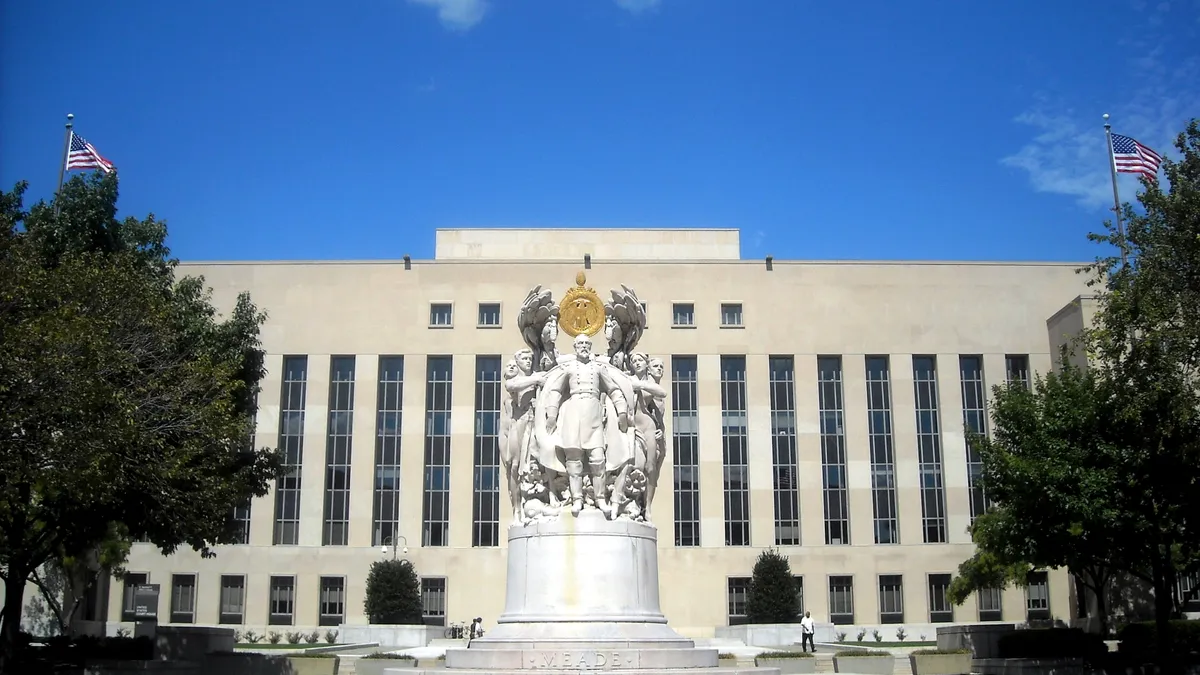Dive Brief:
- A federal appeals court has put the joint employment debate back in the National Labor Relations Board's (NLRB) court, approving, in part, the board's Obama-era Browning-Ferris standard (Browning-Ferris Industries of California, Inc., No. 16-1028 (D.C. Cir., Dec. 28, 2018)).
- In a 2-1 opinion, the U.S. Circuit Court of Appeals for the D.C. Circuit said that it was permissible for the board to create a standard that considered both an employer's reserved right to control and its indirect control over employees' terms and conditions of employment. It also held, however, that the board didn't apply that standard properly in Browning-Ferris and remanded the case.
- In a dissent, Senior Circuit Judge A. Raymond Randolph said the court should not have issued a merits opinion in light of the pending rulemaking proceedings.
Dive Insight:
While the D.C. Circuit has approved the Obama board's broad interpretation of joint employment under the National Labor Relations Act, it remains to be seen whether today's NLRB will adopt such a position.
As Ogletree Deakins attorneys pointed out in a blog post for the firm, the court left several questions unanswered — most notably whether the ruling means that NLRB now lacks the authority to finalize its proposed rule.
Randolph noted as much in a footnote: "If the challenge to the final Board rule here were brought in a district court in another circuit, that district court would have no obligation to follow the majority opinion in this case. For this reason the Board, in its rulemaking, may decide to treat the majority's opinion as having no binding effect on the Board."
The agency proposed new joint employment regulations in September after other unsuccessful attempts to create a more employer-friendly standard. NLRB has proposed that an employer may be considered a joint employer of a separate company's employees only if the two share or codetermine the employees' essential terms and conditions of employment. A joint employer would possess and exercise substantial direct and immediate control over the employees' essential terms and conditions of employment in a manner that is not limited and routine. The comment period closes Jan. 14 and the Board has not yet said when it will issue final rules.
The court's decision does little more than guarantee that the joint employment saga will continue for years to come, according to the Ogletree attorneys: "The court majority merely provided arguments for future challenges to any rule the Board is likely to adopt."
Correction: An earlier version of this article included an incorrect closing date for the joint employment NPRM. Waste Dive regrets the error.
















